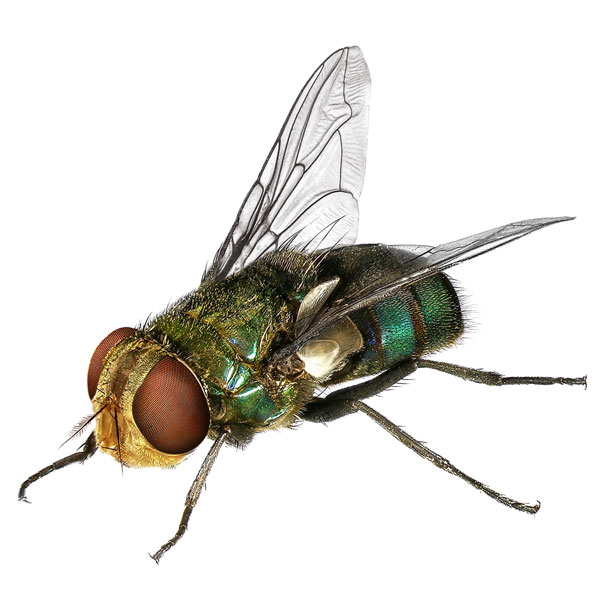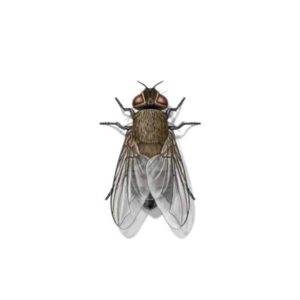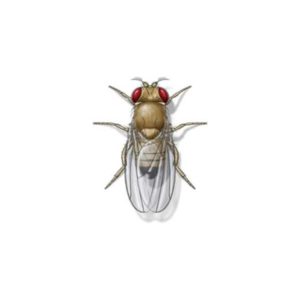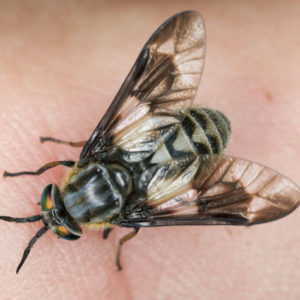Blow Flies in North Jersey
Blow flies are known for seeking out highly unsanitary environments like garbage and rotting animal carcasses. This is why they have the potential to transmit disease-causing pathogens like dysentery. Identified by their vivid metallic coloring, they can be particularly prevalent around garbage dumps, slaughterhouses, and meat processing plants. Although if none of these specialized facilities can be found nearby, they’ll be happy to congregate around the average home, business, or industrial facility. Blow flies have a powerful sense of smell. They can detect the scent of decomposition up to 12 miles away and will travel that distance to lay their eggs.
Blow Fly Habitat
Warm, humid weather is optimal for blow flies. They like to lay eggs on meat, fish, or dead animals, but if that’s not possible they will choose any decomposing organic matter, such as garbage, animal manure, decaying vegetables, grass clippings, and poorly maintained compost piles. In ideal conditions, blow flies can develop from egg to adult within just seven days. If you ever see a mass emergence of maggots crawling out of the backyard trash, that’s a good sign that waste wasn’t properly sealed — and that conditions are ideal for blow fly breeding.
Blow Fly Behaviors, Threats, or Dangers
Blow flies do not bite or sting. Still, they’re incredibly annoying, especially when cooking outdoors. Similar to house flies, when blow flies land on human food they can potentially transfer disease-causing agents from vectors like animal feces and garbage. Salmonella food poisoning, dysentery, cholera, parasitic worms, and other harmful pathogens, are all potential risks.
If you are dealing with a blow fly problem on your property, contact your local North Jersey fly exterminators.





